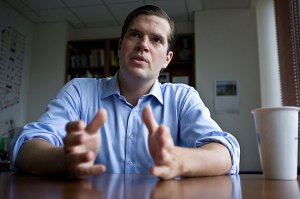Tag: Department of Stem Cell and Regenerative Biology
-
Health
Breakthrough within reach for diabetes scientist and patients nearest to his heart
One hundred years after the discovery of insulin, replacement therapy represents “a new kind of medicine,” says Douglas Melton, co-director of Harvard Stem Cell Institute.
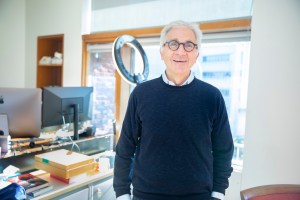
-
Campus & Community
Still wrestling with big questions
Harvard biochemistry professor Jack Strominger is still working in his lab at 94 years old. He will retire and become emeritus in July.

-
Campus & Community
Lab success, life goals
Dalton Brunson’s biology studies have led him to labs, research, and successes that he hopes keep him ever mindful of his commitment to expanding health care in rural areas.
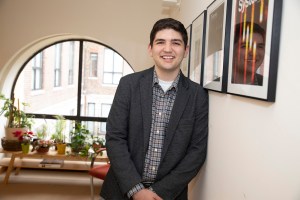
-
Science & Tech
‘Any patient with any disease’
Developed through Harvard’s Blavatnik Biomedical Accelerator, an innovative immune-silent stem cell technology could lead to novel cell therapies to treat “any patient with any disease.”

-
Health
Through the lens of black health
Tania Fabo’s ambition is to bridge the gap between biomedical research in the laboratory and public health efforts to reduce health inequalities among minorities.

-
Health
Compound protects nerve cells targeted by diseases
Harvard researchers have identified a compound that helps protect the cells destroyed by spinal muscular atrophy, the most frequent fatal genetic disease of young children.
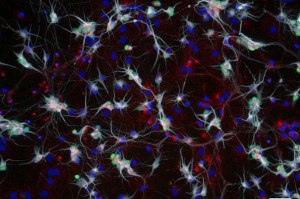
-
Health
Colorful clones track stem cells
Harvard Stem Cell Institute researchers have used a colorful cell-labeling technique to track the development of the blood system and trace the lineage of an adult blood cell traveling through the vast networks of veins, arteries, and capillaries back to its parent stem cell in the marrow.

-
Health
Progress against acute myeloid leukemia
A new drug compound developed by researchers at Massachusetts General Hospital and the Harvard Stem Cell Institute to treat acute myeloid leukemia is gentle enough to use with patients too frail to endure chemotherapy.

-
Health
Making bone marrow transplants safer
Harvard Stem Cell Institute scientists have taken the first steps toward developing a treatment that would make bone marrow-blood stem cell transplantation safer.
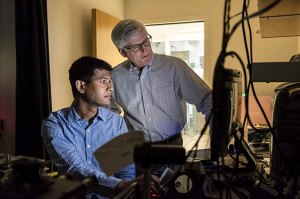
-
Health
New drug target for Rett syndrome
Rett syndrome is a relatively common neurodevelopmental disorder, the second most common cause of intellectual disability in girls after Down syndrome. Building on 2004 findings, Harvard researchers identified a faulty signaling pathway that, when corrected in mice, improves the symptoms of Rett syndrome.
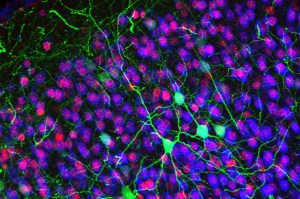
-
Health
Neurons reprogrammed in animals
Harvard Stem Cell Institute researchers have shown that the networks of communication among reprogrammed neurons and their neighbors in the brains of living animals can also be changed, or “rewired.”
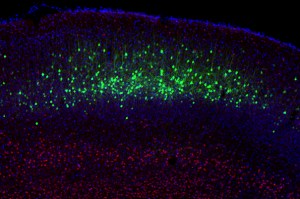
-
Health
Hope against disease targeting children
Harvard Stem Cell Institute researchers studying spinal muscular atrophy have found molecular changes that help trigger the genetic disease in children.
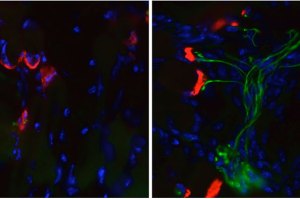
-
Health
Zebrafish reveal drugs that may improve bone marrow transplant
Using large-scale zebrafish drug-screening models, Harvard Stem Cell Institute researchers at Boston Children’s Hospital have identified a potent group of chemicals that helps bone marrow transplants engraft, or “take.”

-
Health
Creating pain-sensing neurons
Harvard Stem Cell Institute researchers at Boston Children’s Hospital and Harvard’s Department of Stem Cell and Regenerative Biology have successfully converted mouse and human skin cells into pain-sensing neurons that respond to a number of stimuli that cause acute and inflammatory distress.
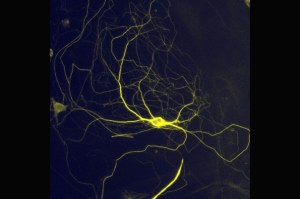
-
Health
Reprogramming cells, long term
Harvard Stem Cell Institute researchers have demonstrated that adult cells, reprogrammed into another cell type in a living animal, can remain functional over a long period. The work is an important advance in the effort to develop cell-based therapies for tissue repair, and specifically in the effort to develop improved treatment for diabetes.
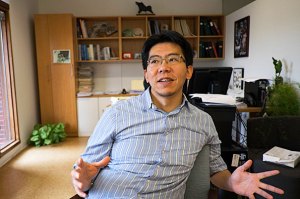
-
Health
Researchers shed new light on schizophrenia
Harvard-affiliated researchers joined an international team to identify more than 100 locations in the human genome associated with the risk of developing schizophrenia in what is the largest genomic study published on any psychiatric disorder to date.
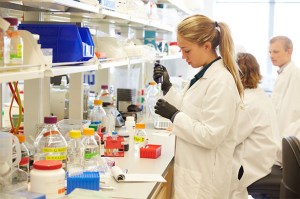
-
Health
Hope for aging brains, skeletal muscle
Researchers at the Harvard Stem Cell Institute have shown that a protein, one they previously demonstrated can make failing hearts in aging mice appear more like those of young and healthy mice, similarly improves brain and skeletal muscle function in aging mice.
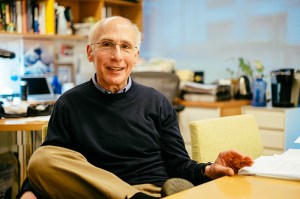
-
Health
Quality control
A Harvard research team led by Kevin Kit Parker, a Harvard Stem Cell Institute principal faculty member, has identified a set of 64 crucial parameters by which to judge stem cell-derived cardiac myocytes, making it possible for scientists and pharmaceutical companies to quantitatively judge and compare the value of stem cells.
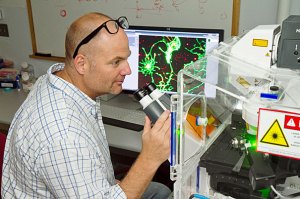
-
Health
A cross-country collaboration
Amy Wagers and Emmanuelle Passegué have found that cancer stem cells actively remodel the environment of bone marrow, where blood cells are formed, so that it is hospitable only to diseased cells. This finding could influence the effectiveness of bone marrow transplants.
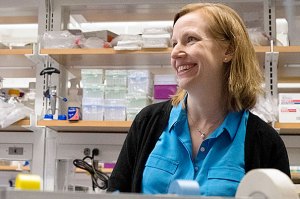
-
Health
Big boost in drug discovery
Using a new, stem cell-based, drug-screening technology that could reinvent and greatly reduce the cost of developing pharmaceuticals, researchers at the Harvard Stem Cell Institute have found a compound that is more effective in protecting the neurons killed in amyotrophic lateral sclerosis than are two drugs that failed in human clinical trials.
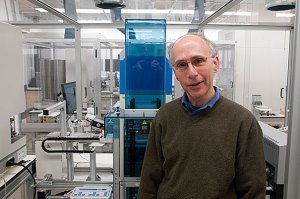
-
Health
New avenue in neurobiology
Harvard stem cell biologists have proven that it is possible to turn one type of already differentiated neuron into another inside the brain, and their findings may have enormous implications for the treatment of neurodegenerative diseases.
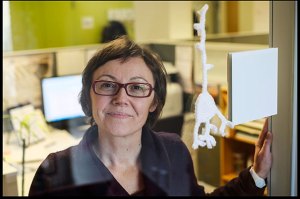
-
Campus & Community
Pausing to celebrate
More than 100 faculty, students, and staff from the Department of Stem Cell and Regenerative Biology turned out for a barbecue to celebrate the full-professor promotions of Kevin Eggan, Konrad Hochedlinger, and Amy Wagers.

-
Health
Personalized medicine closer to reality
A consortium of scientists at 20 institutions, led by a principal faculty member at the Harvard Stem Cell Institute, has used stem cells to take a major step toward developing personalized medicine to treat Parkinson’s disease.
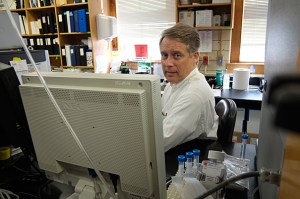
-
Health
Big advance against cystic fibrosis
Harvard stem cell researchers at Massachusetts General Hospital have taken a critical step toward discovering in the relatively near future a drug to control cystic fibrosis, a fatal lung disease that claims about 500 lives each year, with 1,000 new cases diagnosed annually.
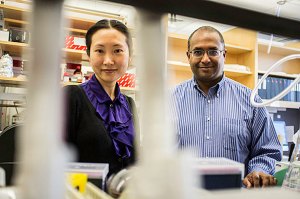
-
Science & Tech
Funding success, and finding it
Four years ago, Harvard’s Office of Technology Development launched its Accelerator Fund, a $10 million revolving account to be used as a bridge across the “valley” between creation and development. The fund is proving to be just such a bridge.
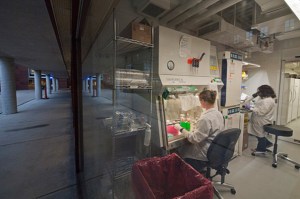
-
Health
Age-related effects of MS may prove reversible
In a new study, Harvard stem cell researchers and scientists at the University of Cambridge have found that the age-related degeneration in conditions such as multiple sclerosis (MS) may be reversible.
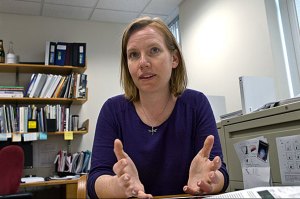
-
Health
Stem cell lessons
Five years after first gaining institutional permission to attempt to produce stem cell lines via somatic cell nuclear transfer (SCNT), two Harvard researchers and a former Harvard postdoctoral fellow have closed the loop with a flurry of new studies and a commentary in several leading journals.
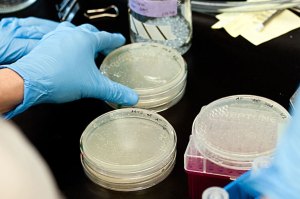
-
Campus & Community
Two named University Professors
Rebecca M. Henderson of the Harvard Business School and Douglas Melton of the Faculty of Arts and Sciences and the Harvard Medical School were named University Professors in recognition of their dedication to teaching and scholarship that crosses academic boundaries.

-
Health
From skin cells to motor neurons
Harvard stem cell researchers have succeeded in reprogramming adult mouse skin cells directly into the type of motor neurons damaged in amyotrophic lateral sclerosis, best known as Lou Gehrig’s disease, and spinal muscular atrophy.
